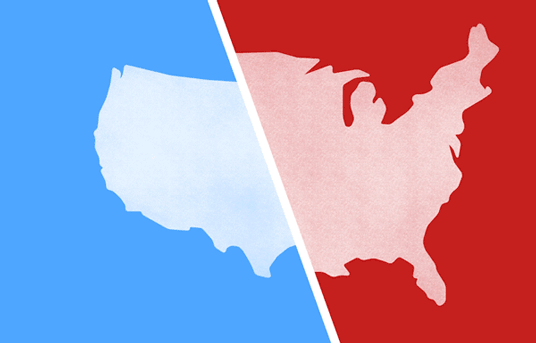The holidays are here, which means it’s time to break bread, make new memories and get into huge blowout fights with your family over politics.
Or maybe not.
Civility — dare we say harmony — can reign at even the most politically divided dinner table, says UC Irvine psychological science professor Peter Ditto. All it takes is a little effort to see the shared values in the people around you.
“There’s a lot of people who argue now against civility, and I think in politics that’s not a bad argument.
“At our Thanksgiving Day table, you’re not going to pass any laws. Civility has a higher priority.”
Restraining your inner lawyer

Ditto studies political behavior, and has found that the same five factors form the basis for people’s moral foundations all over the globe: fairness, loyalty, authority, purity and doing no harm. All over the world, ideas about these elements animate people’s political beliefs. How we feel about any particular issue is less about our sharp and well-considered reasoning, and more about how these factors play on our emotions and values.
“Liberals really only care about harm and fairness; conservatives care about all five. But that points to a commonality, a common, universal moral sense,” says Ditto.
The commonality part may seem less obvious during a heated discussion over the mashed potatoes. That’s because we aren’t built to think rationally; we’re built to argue, and we want to win.
“We’re built to be like lawyers: ‘What can I come up with that will support this position that I’ve already staked out.’”
And the more your opponent says something that angers you, the more likely you are to grasp at straws, generating implausible arguments and doubling down on your point of view. You may see that in yourself, or in your aunt or uncle as they do battle over the issue du jour. Or in Washington, D.C.

This mentality is obviously not a recipe for a peaceful Thanksgiving dinner. But Ditto does have some advice.
“The key is to somehow get people’s temperatures dialed down, get them to dislike each other less, get them to hold onto their ideas less tenaciously. Something like that is going to be a much more effective way to bring people together than rational argument.”
Here are three tips to remember when going into your Thanksgiving arena.
1. Seek understanding, not persuasion.
“I’ve never won a political argument,” Ditto laughs. “I think I’m pretty good at it, I know a lot about politics, I know a lot about psychology, I ought to be good at this, I ought to be able to convince somebody of a political view — I never have. No one ever goes, ‘oh yeah, you’re right. I’m going to change.’”
“Changing people’s minds is really hard.”
So instead of trying to win an argument, try to gain insight into why they think the way they do on an issue you feel differently about. See if there’s any common ground to be shared. If you go into a conversation without trying to “win” it, you are more likely to have a peaceful meal, and maybe even learn something.
“That’s going to be more likely to produce some kind of commonality,” Ditto says.

2. Be brave
Here Ditto suggests trying out a psychological technique known as self-affirmation. Being brave and open about what you believe helps others respond in kind. And when we feel confident in our integrity, we are actually more open to considering new messages.
“Say what you believe, be willing to hear what others have to say, and try not to be defensive,” Ditto says.
3. Be humble
“I think humility is the missing ingredient in American politics these days. Everyone is absolutely convinced they’re right.”

“What all of our research shows is that these biases are bipartisan. Both sides are likely to view information in a way that’s favorable to their own beliefs,” Ditto says. “We switch sides on issues depending on who supports them and things like that. When we realize we do that as well, that really helps.”
If all else fails, and there’s a chill over the stuffing, don’t despair.
“It’s not a loss for you not to persuade your uncle about the reality of climate change,” Ditto says. “If you can, pull back, try to agree to disagree, try to maintain some sense that you’ve expressed yourself but that it’s not going to end your relationship.”
“If conversations are imbued with a lot of positive affect, everything will go better. It’s easier to convince someone who likes you rather than doesn’t like you. Promoting liking first is actually a better strategy.”
So don’t forget to compliment your uncle’s sweater, and please pass the butter.
Learn more about why our politics aren't as rational as we think below:

